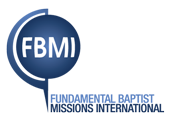As we know, the world is experiencing a public-health emergency with regard to the Coronavirus outbreak. Cases have been identified worldwide, including in 35 states in America. This virus is of greater than average concern because it’s new (meaning there’s no immunity from previous cases), so it spreads rapidly through groups of people. Those who wish to learn more may use the following link, among others, to find official Center for Disease Control (CDC) updates and guidelines: https://www.cdc.gov/coronavirus/2019-ncov/summary.html.
Much information and how to respond to this outbreak has already been learned. It appears that over 80% of cases of this infection result in minor illness and recovery, but just as we see with influenza, the elderly and those with chronic illnesses (cancer, diabetes, lung disease, weakened immune systems, etc.) are more likely to develop a serious infection. We should all take proper precautions to help protect these who are most vulnerable. Here is what each of us should do to help minimize the public-health effects:
1. Don’t yield to fear – “For God hath not given us the spirit of fear; but of power, and of love, and of a sound mind.” (II Timothy 1:7) – responding instead with faith in God, prayer, and wise behavior, as advised by our public-health authorities. In the United States, it is the CDC.
2. Do your best to reduce the risk of infection:
a. Avoid needless contact with those who are sick.
b. Avoid touching your eyes, nose, and mouth.
c. Stay home when you become sick, especially if you have a cough, shortness of breath, or a fever, since the cause of your sickness is at first uncertain.
d. If you cough or sneeze, cover your mouth with a tissue or your elbow, disposing of the tissue in the trash as soon as possible.
e. Clean or disinfect frequently touched public surfaces and objects.
f. Don’t use a face mask unless caring for the sick; then a mask and gloves are wise to use.
g. Wash hands with soap and water for at least 20 seconds after using the restroom, coughing or sneezing, or blowing your nose.
3. Respond wisely If you do get sick, for the sake of everyone:
a. Stay home unless you are seeking medical care.
b. Separate yourself from others and from animals in the home.
c. Call ahead before going to the doctor to get their instructions.
d. Wear a face mask when around others for their protection.
e. Cover coughs and sneezes and dispose of tissues, etc.
f. Don’t share personal household items like eating utensils, towels, cups, etc.
g. Continue to wash your hands often with soap and water, while continuing to clean public surfaces and objects.
h. Monitor your symptoms and seek medical care, if you get worse.
i. Continue this home isolation until those giving you medical attention give the green light to discontinue.
Our trust is in the Lord, but these simple steps will go a long way to keeping us all as healthy as possible while serving God.


